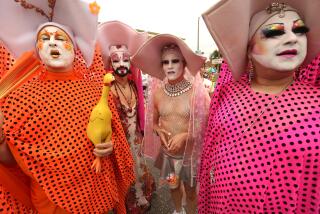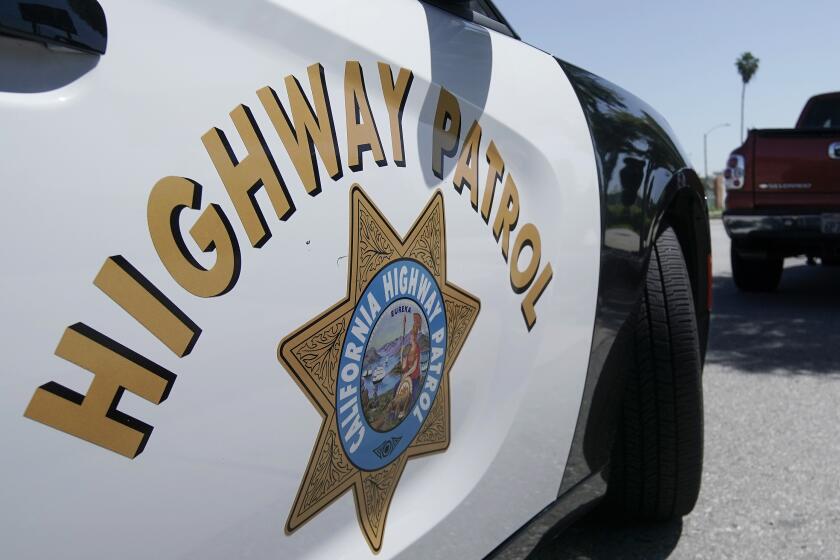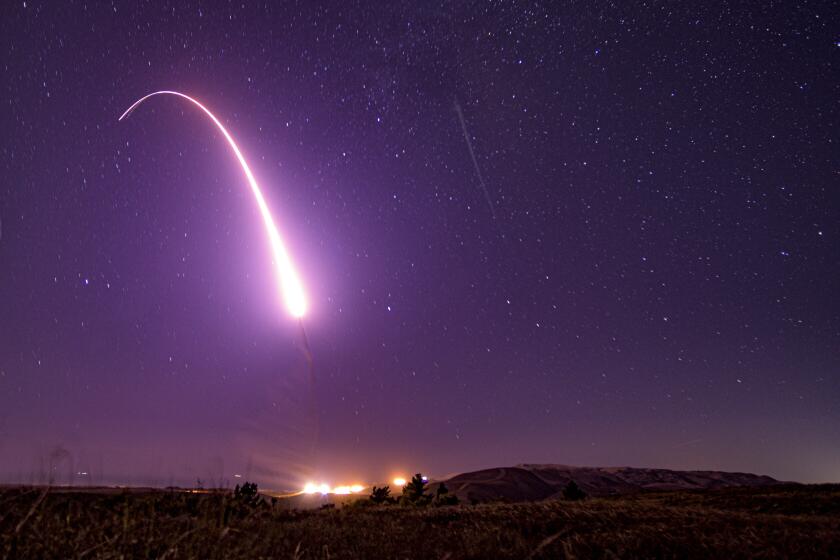Mormons to Hold Interfaith Service Marking King Day
- Share via
A Mormon church for the first time will be the host of the San Fernando Valley’s main interfaith observance of Martin Luther King Jr.’s birthday next week, demonstrating that the 8-million-member denomination is shedding both an earlier anti-black image and a self-imposed isolation from mainstream religion.
“Mormons have taken part in King celebrations before, but we don’t know of any service that has been conducted at one of our chapels,” said Jack Adams of Chatsworth, a regional spokesman for the Church of Jesus Christ of Latter-day Saints based in Salt Lake City.
“Basically, we’ve been instructed to look for ways in the Judeo-Christian community that we can join efforts for the betterment of life and standards,” Adams said.
Before accepting the offer of the Mormons’ Van Nuys Stake, or church center, for the Jan. 20 service, however, the sponsoring Valley Interfaith Council sought the advice of black leaders in the Valley.
“The Mormon Church really had some image problems a while back, but everyone told us it would be a good idea,” said Barry Smedberg, executive director of the interfaith council.
The Rev. William T. Broadus, pastor of the predominantly black Calvary Baptist Church in Pacoima, said he did not object to meeting in a Mormon church. “Martin Luther King stood for the brotherhood of man. Mormons or anyone else who want to recognize what King did for our society are welcome at any ecumenical event,” Broadus said.
In the 1970s, protesters accused the Mormon Church of fostering racial discrimination through its longtime policy of barring blacks from the ranks of its male priesthood. To most Mormons, those protests reinforced a sense of persecution throughout their 162-year history. Other churches have ostracized Mormonism for its 19th-Century practice of polygamy, its secret temple rites and its claim to be the restoration of true Christianity, among other things.
However, in 1978, the Mormon First Presidency announced a “revelation” that the priesthood would be open to all races. The church has since attracted more black members, especially in Latin America and Africa.
Race may have become a forgotten issue among many non-Mormons, but the Utah-centered church was slow to join in inter-religious ventures--even in the early 1980s when Muslims, Buddhists and other religionists were doing so.
“From my experience, things began to change about 1985,” said Keith Atkinson, Los Angeles-based public affairs spokesman for about 800,000 Mormons in California. He recalled a decision then by Mormon leaders to take $11 million in funds raised for Ethiopian famine relief and channel the money through Roman Catholic agencies already working in that country.
“There was pressure from the bottom as well as from the top to join with people of like minds to have a greater impact,” Atkinson said.
At the national level, Mormons joined anti-pornography committees of religious leaders and have been enthusiastic participants in the multi-faith television cable network, VISN. They have also been accepted as members in local interfaith groups such as the Interreligious Council of Southern California and the Valley Interfaith Council.
Evangelical Protestant groups still oppose Mormonism as a heretical sect, but those churches also shun interfaith councils as too liberal.
Thus, membership in interfaith groups brings the socially conservative Mormons into contact with religious practitioners of a wholly different stripe.
For instance, the predominantly homosexual Metropolitan Community Church in the Valley is a longtime member of the Valley Interfaith Council. Its pastor, the Rev. Sheree Boothman, will give the closing prayer at the King birthday service the night of Jan. 20.
“This will be one of the few times we will be welcomed with open arms in a Mormon church,” Boothman jokingly told her North Hollywood congregation on a recent Sunday. She said in an interview that she was surprised but pleased that the Mormons will be hosts of the service.
Asked about the gay church’s participation, Mormon regional spokesman Adams said: “We have our principles and understandings, and we allow others that same privilege.”
Adams said participation allows a chance to clear up misunderstandings about each other’s religious beliefs and practices. “Once that happens, there is a tremendous rapport,” he said. “We respect them more fully and I suspect they do us.”
More to Read
Sign up for Essential California
The most important California stories and recommendations in your inbox every morning.
You may occasionally receive promotional content from the Los Angeles Times.










